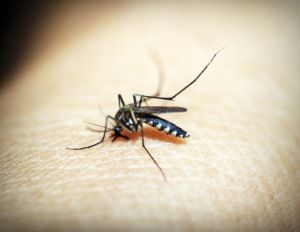News
Danish researchers ready to keep super malaria at bay
This article is more than 8 years old.
New method to monitor spread of drug-resistant malaria parasites

Humanity’s biggest killer (photo: Pixabay)
A Danish research project at the University of Copenhagen (KU) is rising to the challenge of containing the spread of drug-resistant malaria parasites in Southeast Asia.
The method involves mapping the resistant markers from the genetic material of the parasites (next-generation sequencing) and doing so via an affordable disposable test. The method has piqued the interest of WHO co-op partner FIND (Foundation for Innovative New Diagnostics).
“We’ve discovered an easy and relatively cheap way to monitor drug-resistant malaria in the world. It can take us really far in terms of avoiding a huge catastrophe,” Sidsel Nag, a PhD student at the Department of Immunology and Microbiology at KU and co-author of the research, told Videnskab.dk.
“They [FIND] are trying to assemble a taskforce to monitor drug-resistant malaria because the issue is beginning to catch fire.”
READ MORE: Danish malaria vaccine for pregnant women could save millions
On the move
The ‘super malaria’, as it has been referred to, has made its way to southern Vietnam from Cambodia recently, and the World Health Organisation (WHO) contends its resistance is one of the biggest hurdles to overcoming the illness.
Until now, malaria has been diagnosed by viewing the parasites under a microscope, while the resistant element has been identified via the failure of patients to respond to medication.
The research results, recently published in the scientific journal Nature Scientific Reports, have prompted FIND to invite Nag to an expert meeting in Geneva.
The first cases of antimalarial drug-resistant parasites began popping up in Cambodia in 2008. They are immune to both artemisinin and piperaquine, the primary drugs used to combat malaria.
In 2015, there were almost 300 million cases of malaria worldwide resulting in about 730,000 deaths – 90 percent of which (cases and deaths) took place in Africa.










































